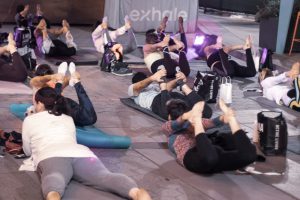Chronic pain is a problem that many people suffer from every day. The Centers for Disease Control and Prevention (CDC) indicate that almost 50 million Americans are struggling to live with daily pain. Chronic pain occurs when a person suffers from pain most days to every day of the week. Some individuals can manage their pain and still engage in normal daily activities. However, for others, the pain is so severe that it is impossible to engage in normal daily activities most days of the week. For these patients, treatment is designed to help reduce the intensity of the pain they endure so that they can have an improved quality of life.
Opioids have been used by medical doctors to help their patients treat their chronic pain. When this practice became mainstream, there was no emphasis on safe prescribing guidelines. Opioids became such a common go-to they were being excessively prescribed. Alternative options were not being used, even though many are much more effective. This is due, in large part because of the lack of insurance coverage for these treatments. As time has passed and more attention has been drawn to the opioid epidemic in the United States studies have shown that opioids are not the best treatment for chronic pain.
Finding New Ways To Approach Pain Management
The most effective treatment plans are multi-disciplinary. This means that your primary care provider teams up with other specialists to look at all the physical and emotional symptoms associated with pain. Functional and Holistic health doctors are also involved to provide alternative care to help with symptoms.
Physical movement and motion are one of the most effective treatments for chronic pain sufferers. Having patients get in touch with personal trainers, join local gyms or clubs, and fitness centers to keep the body in motion has shown tremendous promise in reducing pain symptoms. In addition to helping with pain, a regular exercise routine also provides many other benefits to the patient, such as weight loss and increased energy, for instance. The cost could be a limiting factor for some patients as insurance generally doesn’t cover fitness expenses but a doctor with a wide resource pool can offer other more affordable alternatives.
Types Of Pain
The most common pain symptoms that chronic pain sufferers experience is headaches, abdominal pain, and musculoskeletal pain.
- Musculoskeletal pain is felt in the muscles and joints. Movement therapies such as stretching, yoga, or physical therapy are very helpful treatments. Non-narcotic medications such as topicals, anti-inflammatories can assist an exercise program and make for a strong, functional treatment plan.
- Abdominal pain can be caused by a variety of factors. Diet adjustments can help reduce incidents of flare-ups. Reducing stress through exercise, therapy, behavioral therapy, spiritual guidance, or controlled breathing exercises can all help individuals reduce the amount of stress they experience.
- The cause of headaches can be difficult to pinpoint. A physician can use medications that have codeine, which isn’t completely immune from abuse but codeine has a lower threshold for abuse than oxycodone or hydrocodone. Relaxation techniques including yoga, controlled breathing, or meditation can also help one who suffers from headaches.
Do You Have An Addiction To Prescription Painkillers And Need Help?
 Americans are used to quick fixes and finding a quick for pain is no exception. When you aren’t feeling well, all you want to do is feel better, and that is normal. The overuse of prescription pain killers and the easy ability to develop an addiction make it important for medical professionals to offer alternative treatment pathways for their patients.
Americans are used to quick fixes and finding a quick for pain is no exception. When you aren’t feeling well, all you want to do is feel better, and that is normal. The overuse of prescription pain killers and the easy ability to develop an addiction make it important for medical professionals to offer alternative treatment pathways for their patients.
If you are addicted to prescription painkillers the medical detox and addiction alternative treatment center at Discovery Place can help you safely detox. Discovery Place’s Tennessee addiction alternative treatment center’s programs will provide you the guidance and tools you need to be successful. You can call our Tennessee detox alternative treatment center any time to talk with one of our caring staff members at 1-800-725-0922.


